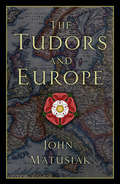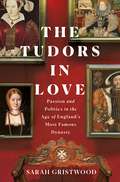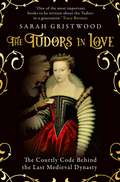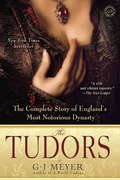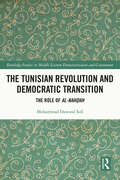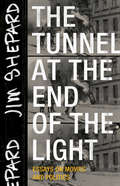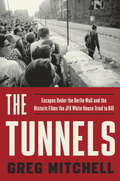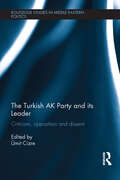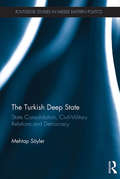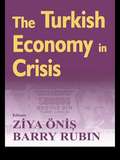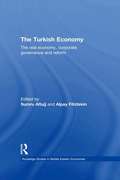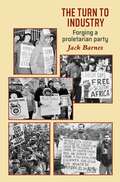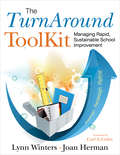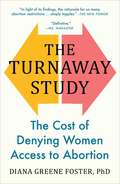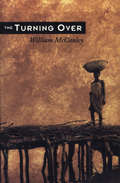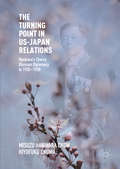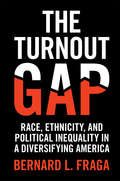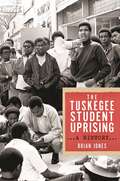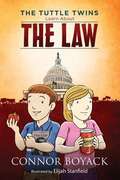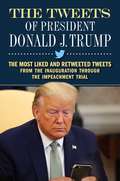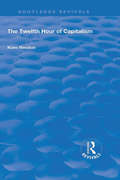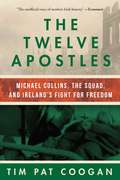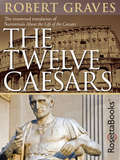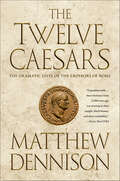- Table View
- List View
The Tudors and Europe
by John MatusiakIn 1517, a certain Dr Beale, rector of St Mary Spitall in London, had roused the capital’s mob by laying the blame for an increase in poverty squarely upon the shoulders of grasping foreigners. ‘God has given England to Englishmen,’ he fumed, and ‘as birds would defend their nest, so ought Englishmen to cherish and defend themselves and to hurt and grieve aliens for the common weal.’ But migration was not the only factor influencing Tudor attitudes to Europe. War, religion, commerce and dynastic security were all critical in linking England to developments abroad, and in ways that remain strikingly relevant today. What were the forces that shaped the shifting perspectives of Tudor men and women and their rulers towards a continent at the crossroads? And what, in turn, were the responses of sixteenth-century Europeans to their counterparts across the Channel? The Tudors and Europe looks at a time when the very survival of England hung critically in the balance and asks if it has lessons for the present.
The Tudors in Love: Passion and Politics in the Age of England's Most Famous Dynasty
by Sarah GristwoodSarah Gristwood's The Tudors in Love offers a brilliant history of the Tudor dynasty, showing how the rules of romantic courtly love irrevocably shaped the politics and international diplomacy of the period.Why did Henry VIII marry six times? Why did Anne Boleyn have to die? Why did Elizabeth I's courtiers hail her as a goddess come to earth?The dramas of courtly love have captivated centuries of readers and dreamers. Yet too often they're dismissed as something existing only in books and song--those old legends of King Arthur and chivalric fantasy.Not so. In this ground-breaking history, Sarah Gristwood reveals the way courtly love made and marred the Tudor dynasty. From Henry VIII declaring himself as the ‘loyal and most assured servant' of Anne Boleyn to the poems lavished on Elizabeth I by her suitors, the Tudors re-enacted the roles of the devoted lovers and capricious mistresses first laid out in the romances of medieval literature. The Tudors in Love dissects the codes of love, desire and power, unveiling romantic obsessions that have shaped the history of the world.
The Tudors in Love: The Courtly Code Behind the Last Medieval Dynasty
by Sarah Gristwood&‘One of the most important books to be written about the Tudors in a generation.&’ Tracy Borman &‘A riveting, pacy page-turner… the Tudors as you&’ve never seen them before.&’ Alison Weir Why did Henry VIII marry six times? Why did Anne Boleyn have to die? Why did Elizabeth I&’s courtiers hail her as a goddess come to earth? The dramas of courtly love have captivated centuries of readers and dreamers. Yet too often they&’re dismissed as something existing only in books and song – those old legends of King Arthur and chivalric fantasy. Not so. In this ground-breaking history, Sarah Gristwood reveals the way courtly love made and marred the Tudor dynasty. From Henry VIII declaring himself as the &‘loyal and most assured servant&’ of Anne Boleyn to the poems lavished on Elizabeth I by her suitors, the Tudors re-enacted the roles of the devoted lovers and capricious mistresses first laid out in the romances of medieval literature. The Tudors in Love dissects the codes of love, desire and power, unveiling romantic obsessions that have shaped the history of this nation.
The Tudors: The Complete Story of England's Most Notorious Dynasty
by G. J. MeyerNEW YORK TIMES BESTSELLERBONUS: This edition contains a The Tudors discussion guide.Acclaimed historian G. J. Meyer provides a fresh look at the fabled Tudor dynasty—and some of the most enigmatic figures ever to rule a country. In 1485, Henry Tudor, whose claim to the English throne was so weak as to be almost laughable, nevertheless sailed from France with a ragtag army to take the crown from the family that had ruled England for almost four centuries. Fifty years later, his son, Henry VIII, aimed to seize even greater powers—ultimately leaving behind a brutal legacy that would blight the lives of his children and the destiny of his country. Edward VI, a fervent believer in reforming the English church, died before realizing his dream. Mary I, the disgraced daughter of Catherine of Aragon, tried and failed to reestablish the Catholic Church and produce an heir, while Elizabeth I sacrificed all chance of personal happiness in order to survive. The Tudors presents the sinners and saints, the tragedies and triumphs, the high dreams and dark crimes, of this enthralling era.
The Tunisian Revolution and Democratic Transition: The Role of al-Nahḍah (Routledge Studies in Middle Eastern Democratization and Government)
by Mohammad Dawood SofiDrawing on the history of post-independence Tunisia, the book studies the evolution of al-Nahḍah as a political party in Tunisia and its role in a protracted struggle to shape the post-authoritarian order along democratic lines. It explores al-Nahḍah's relationship with the Tunisian state, society and beyond that resulted in shaping its fluctuating expressions of ideology and practices. State repression, political participation, or internal differentiation (among other factors) place an Islamic movement (in this case al-Nahḍah) in such a situation that demands a perpetual self re-evaluation as well as implementation of ideology, objectives, and political programmes. The study explains how the socio-political setting in Tunisia demanded various ideologically opposite currents (Islamic, liberal, or leftist) to endure cross-ideological cooperation either to contest authoritarian regimes or to engage in the political process. It more importantly analyzes the trajectory of a gradual democratization process in the country and provides evidence explaining the impact and importance of a vibrant civil society, building alliances, and sharing of power. The book provides comparative analytical attention to the primary sources on these issues to create a critical historiography. It thus adds to the body of literature on the state, society, and politics in the MENA region and particularly targets students, scholars, and social scientists interested in understanding the nature of power and politics in Tunisia and beyond.
The Tunnel at the End of the Light: Essays On Movies And Politics
by Jim Shepard"Shepard may be the best lesser-known film critic." —The New York Times Book Review The first book of nonfiction from one of our great fiction writers. Given that most Americans proudly consider themselves non-political, where do our notions of collective responsibility come from? Which self-deceptions, when considering ourselves as actors on the world stage, do we cling to most tenaciously? Why do we so stubbornly believe, for example, that our country always means well when intervening abroad? The Tunnel at the End of the Light argues that some of our most persistent and destructive assumptions, in that regard, might come from the movies. In these ten essays Jim Shepard weaves close readings of film with cultural criticism to explore the ways in which movies work so ubiquitously to reflect how Americans think and act. Whether assessing the “high-spirited glee of American ruthlessness” captured in GoodFellas, or finding in Lawrence of Arabia a “portrait of the lunatic serenity of our leaders’ conviction in the face of all evidence and their own lack of knowledge,” he explores how we enter into conversations with specific genres and films—Chinatown, The Third Man, and Badlands among others—in order to construct and refine our most cherished illusions about ourselves.
The Tunnels: Escapes Under the Berlin Wall and the Historic Films the JFK White House Tried to Kill
by Greg MitchellA thrilling Cold War narrative of superpower showdowns, media suppression, and two escape tunnels beneath the Berlin Wall In the summer of 1962, the year after the rise of the Berlin Wall, a group of young West Germans risked prison, Stasi torture, and even death to liberate friends, lovers, and strangers in East Berlin by digging tunnels under the Wall. Then two U.S. television networks heard about the secret projects and raced to be first to document them from the inside. NBC and CBS funded two separate tunnels in return for the right to film the escapes, planning spectacular prime-time specials. President John F. Kennedy, however, was wary of anything that might spark a confrontation with the Soviets, having said, "A wall is better than a war," and even confessing to Secretary of State Dean Rusk, "We don't care about East Berlin." JFK approved unprecedented maneuvers to quash both documentaries, testing the limits of a free press in an era of escalating nuclear tensions.As Greg Mitchell's riveting narrative unfolds, we meet extraordinary characters: the legendary cyclist who became East Germany's top target for arrest; the Stasi informer who betrays the "CBS tunnel"; the American student who aided the escapes; an engineer who would later help build the tunnel under the English channel; the young East Berliner who fled with her baby, then married one of the tunnelers. Capturing the chilling reach of the Stasi secret police, U.S. networks prepared to "pay for play" yet willing to cave to official pressure, a White House eager to suppress historic coverage, and the subversive power of ordinary people in dire circumstances, The Tunnels is breaking history, a propulsive read whose themes still reverberate.From the Hardcover edition.
The Turkish AK Party and its Leader: Criticism, opposition and dissent (Routledge Studies in Middle Eastern Politics)
by Ümit CizreAfter landslide electoral victories, two referenda and a presidential election, thirteen years of AK Party rule have shattered many myths regarding Turkey’s politics and the nature of the party itself. This book argues that the last thirteen years are best understood via the AK party’s interaction with the social-political realm. It focuses on criticism, dissent and opposition from prominent organized groups in Turkish society, which themselves represent significantly different traditions, ideologies and interests. Bringing together specialists from across the field, its chapters explore key societal actors to reveal the dynamics behind the last decade of AK Party rule. Overall, the book throws light on the extent to which the government’s characters, trajectories, policies and leadership style have been interactively shaped by opposition and dissent. Exploring the historically unprecedented and politically controversial rule of the AK Party, as well as the relationship between modern societal groups and a government driven by a conservative Islamic tradition, this book is a valuable resource for students and scholars of Turkish studies, as well as politics more generally.
The Turkish Deep State: State Consolidation, Civil-Military Relations and Democracy (Routledge Studies in Middle Eastern Politics)
by Mehtap SooylerThe deep state ranks among the most critical issues in Turkish politics. This book traces its origins and offers an explanation of the emergence and trajectory of the deep state; the meaning and function of informal and authoritarian institutions in the formal security sector of a democratic regime; the involvement of the state in organized crime; armed conflict; corruption; and massive human rights violations. This book applies an innovative methodological approach to concept formation and offers a mid-range theory of deep state that sheds light on the reciprocal relationship between the state and political regimes and elaborates on the conditions for the consolidation of democracy. It traces the path-dependent emergence and trajectory of the deep state from the Ottoman Empire to the current Turkish Republic and its impact on state-society relations. It reads state formation, consolidation, and breakdown from the perspective of this most resilient phenomenon of Turkish politics. The analysis also situates recent developments regarding AKP governments, including the EU accession process, civil-military relations, coup trials, the Kurdish question, and the Gülen Movement in their context within the deep state. Moreover, this case-study offers an analytical framework for cross-regional comparative analysis of the deep states. Addressing the lacuna in academic scholarship on the deep state phenomenon in Turkey, this book is essential reading for students and scholars with an interest in democratization, politics and Middle East Studies.
The Turkish Economy in Crisis: Critical Perspectives on the 2000-1 Crises
by Barry Rubin Ziya OnisThis book provides a set of critical perspectives on the economic crises of 2000 and 2001 focusing on both the origins and consequences of the crises. Attention is drawn to the role of domestic actors as well as key external actors such as the International Monetary Fund in precipitating the twin crises.
The Turkish Economy: The Real Economy, Corporate Governance and Reform (Routledge Studies in Middle Eastern Economies)
by Sumru Altug Alpay FiliztekinIncluding contributions from noted international scholars, this collection of papers provides a strong theoretical and empirical underpinning for the discussion of major public policy issues facing Turkey today. Matters addressed include: determinants of growth and productivity education and human capital accumulation income inequality corporate control and government performance of the government sector impact of major public policy issues on the future growth prospects of the Turkish economy. This volume relates the impact of major public policy issues on the future growth prospects of the Turkish economy. At a time when Turkey is currently attempting to gain membership to the European Union, this pertinent reference questions whether the country's economy is in fact ready for EU accession and membership.
The Turn to Industry
by Jack BarnesThe Turn to Industry: Forging a Proletarian Party is about the working-class program, composition, and course of conduct of the only kind of party worthy of the name ‘revolutionary’ in the imperialist epoch. The only kind of party that can recognize the most revolutionary fact of this epoch—the worth of working people, and our power to change society when we organize and act against the capitalist class in all its economic, social, and political forms. This book is about building such a party in the United States and in other capitalist countries around the world. Jack Barnes is National Secretary of the Socialist Workers Party.
The TurnAround ToolKit: Managing Rapid, Sustainable School Improvement
by Dr Lynn S. Winters Dr Joan L. HermanThe TurnAround Toolkit outlines a formative evaluation program for enhancing school and student achievement. Included are pocket summaries for each chapter and an online "toolkit."
The Turnaway Study: The Cost of Denying Women Access to Abortion
by Diana Greene Foster&“If you read only one book about democracy, The Turnaway Study should be it. Why? Because without the power to make decisions about our own bodies, there is no democracy.&” —Gloria Steinem The &“remarkable&” (The New Yorker) landmark study of the consequences on women&’s lives—emotional, physical, financial, professional, personal, and psychological—of receiving versus being denied an abortion that &“should be required reading for every judge, member of Congress, and candidate for office—as well as anyone who hopes to better understand this complex and important issue&” (Cecile Richards).What happens when a woman seeking an abortion is turned away? To answer this question, Diana Greene Foster assembled a team of scientists—psychologists, epidemiologists, demographers, nurses, physicians, economists, sociologists, and public health researchers—to conduct a ten-year study. They followed a thousand women from across America, some of whom received abortions, some of whom were turned away. Now, for the first time, Dr. Foster presents the results of this landmark study in one extraordinary, groundbreaking book. Judges, politicians, and pro-life advocates routinely defend their anti-abortion stance by claiming that abortion is physically risky and leads to depression and remorse. Dr. Foster&’s data proves the opposite to be true. Foster documents the outcomes for women who received and were denied an abortion, analyzing the impact on their mental and physical health, their careers, their romantic relationships, and their other children, if they have them. Women who received an abortion were better off by almost every measure than women who did not, and five years after they receive an abortion, 99 percent of women do not regret it. As the national debate around abortion intensifies, The Turnaway Study offers the first thorough, data-driven examination of the negative consequences for women who cannot get abortions and provides incontrovertible evidence to refute the claim that abortion harms women. Interwoven with the study findings are ten &“engaging, in-depth&” (Ms. Magazine) first-person narratives. Candid, intimate, and deeply revealing, they bring to life the women and the stories behind the science. Revelatory, essential, and &“particularly relevant now&” (HuffPost), this is a must-read for anyone who cares about the impact of abortion and abortion restrictions on people&’s lives.
The Turning Over: A Novel
by William MccauleyFor several years, Robert Kelley lived a primitive and contented life in a fishing village in the mangrove swamps of Sierra Leone. There, he developed and managed a project that built a cooperative fisheries station to support remote coastal villages. His development work done, he reluctantly turns the station over to the corrupt government Fisheries Division, whom he knows from experience will simply steal its resources and go away, leaving the villagers poorer than ever. He travels to Freetown, the capital, to present his last report to his employer, an English development agency, and leave Sierra Leone for Mali to join Marie, with whom he's had an intermittent and intense love affair. But when he arrives in Freetown, his superior offers him another position, establishing and managing a new project in the heart of a politically unstable region of the country. Robert hesitates to accept, for he has already committed himself to joining Marie. His decision embroils him in unexpected and violent consequences. This love story of two expatriates is set against a lushly pictured West Africa in which the echoes of colonial, and even pre-colonial, life are still evident in the corrupting power of the Big Man and the equally corrupting privilege that surrounds white expatriate life. The Turning Over vividly portrays the last vestiges of that epoch in a world disintegrating into chaos.
The Turning Point in US-Japan Relations
by Misuzu Hanihara Chow Kiyofuku ChumaThis book analyses two international incidents in the 1920s shocked Japan and changed the way in which the country looked at the West. In the Paris Peace Conference, Japanese proposed Racial Equality Bill was defeated. In 1924, the US passed the immigration law that singularly excluded Japanese from immigration. Little known today, the two incidents made significant impact on Japanese mind-set. Detailed study of the two incidents reveals how they contributed towards the drastic transformation of Japan, from the liberal thinking Taisho Democracy in the 1920s to the violent rise of ultra- nationalism in the 1930s. Departing from a purely academic style writing, the story develops around the life of Hanihara Masanao, Japanese diplomat, Vice Minister of Foreign Affairs and ultimately the Ambassador to Washington during the fateful years of 1923-24. A unique pair of a Japanese Studies scholar in Australia and a leading investigative journalist in Japan undertook the work. Rigorous archival search extended over Japan, the United States, Australia and Europe resulted in a significant amount of new materials never published in English before.
The Turnout Gap: Race, Ethnicity, and Political Inequality in a Diversifying America
by Bernard L. FragaIn The Turnout Gap, Bernard L. Fraga offers the most comprehensive analysis to date of the causes and consequences of racial and ethnic disparities in voter turnout. Examining voting for Whites, African Americans, Latinos, and Asian Americans from the 1800s to the present, Fraga documents persistent gaps in turnout and shows that elections are increasingly unrepresentative of the wishes of all Americans. These gaps persist not because of socioeconomics or voter suppression, but because minority voters have limited influence in shaping election outcomes. As Fraga demonstrates, voters turn out at higher rates when their votes matter; despite demographic change, in most elections and most places, minorities are less electorally relevant than Whites. The Turnout Gap shows that when politicians engage the minority electorate, the power of the vote can win. However, demography is not destiny. It is up to politicians, parties, and citizens themselves to mobilize the potential of all Americans.
The Tuskegee Student Uprising: A History (Black Power #2)
by Brian JonesBCALA 2023 Nonfiction Award WinnerHistory of Education Society's Outstanding Book Award 2022 SemifinalistNamed one of the top 25 books all students should read by Tuskegee UniversityThe untold story of a dynamic student movement on one of the nation’s most important historically Black campusesThe Tuskegee Institute, one of the nation’s most important historically Black colleges, is primarily known for its World War II pilot training program, a fateful syphilis experiment, and the work of its founder, Booker T. Washington. In The Tuskegee Student Uprising, Brian Jones explores an important yet understudied aspect of the campus’s history: its radical student activism.Drawing upon years of archival research and interviews with former students, professors, and administrators, Brian Jones provides an in-depth account of one of the most dynamic student movements in United States history. The book takes the reader through Tuskegee students’ process of transformation and intellectual awakening as they stepped off campus to make unique contributions to southern movements for democracy and civil rights in the 1960s. In 1966, when one of their classmates was murdered by a white man in an off-campus incident, Tuskegee students began organizing under the banner of Black Power and fought for sweeping curricular and administrative reforms on campus. In 1968, hundreds of students took the Board of Trustees hostage and presented them with demands to transform Tuskegee Institute into a “Black University.” This explosive movement was thwarted by the arrival of the Alabama National Guard and the school’s temporary closure, but the students nevertheless claimed an impressive array of victories. Jones retells these and other events in relation to the broader landscape of social movements in those pivotal years, as well as in connection to the long pattern of dissent and protest within the Tuskegee Institute community, stretching back to the 19th century. A compelling work of scholarship, The Tuskegee Student Uprising is a must-read for anyone interested in student activism and the Black freedom movement.
The Tutor of History
by Manjushree ThapaNepalese writer Manjushree Thapa explores the themes of love, nationality, and indeed the destiny of a subcontinent, in this terrific first novel.
The Tuttle Twins Learn About the Law
by Connor Boyack Elijah StanfieldUntil now, freedom-minded parents had no educational material to teach their children the concepts of liberty. The Tuttle Twins series of books helps children learn about political and economic principles in a fun and engaging manner. With colorful illustrations and a fun story, your children will follow Ethan and Emily as they learn about liberty!
The Tweets of President Donald J. Trump: The Most Liked and Retweeted Tweets from the Inauguration through the Impeachment Trial
by Forefront BooksLove them or hate them, the tweets of President Donald J. Trump rule the Twitterverse.Until our last presidential campaign, television, particularly campaign ads, dominated the political landscape. But with the rise of Donald J. Trump came a new political tool: the internet. Trump used this to communicate instantly and very effectively with the American people. And it worked. Establishing his political positions by tweeting numerous times a day, Trump pulled a major upset by defeating Hillary Rodham Clinton to become the 45th president of the United States. Once in office, Trump did not abandon his penchant for using Twitter as his populist platform. Instead, he doubled down on it, making it his primary means of communicating with the American people. Knowing how effective a tweet can be, Trump once wrote, &“Boom. I press it and within two seconds we have breaking news.&” With a massive Twitter following of 78 million by the spring of 2020, Trump&’s direct impact upon Americans cannot be dismissed, nor can the value of his tweets as an essential part of the historical record be denied. To put the enormous impact of his tweets into perspective, Trump won the White House with 63 million votes—a number significantly lower than his massive Twitter following. Now you can read the collected tweets of wisdom—or ridiculousness—from President Donald J. Trump, from his inauguaration through February 2020 in this historically significant collection.
The Twelfth Hour of Capitalism (Routledge Revivals)
by Kuno RenatusFirst published in 1932. In this book, a well-known German authority on economics analyzes the present world situation and points the way out. His contention is that reparations are not in themselves enough to account for the crisis, which is rather due to the burden of interest that is being paid one way and another on the money sunk unproductively in the World War.
The Twelve Apostles: Michael Collins, the Squad, and Ireland's Fight for Freedom
by Tim Pat CooganIreland, 1919: When Sinn Féin proclaims Dáil Éireann the parliament of the independent Irish republic, London declares the new assembly to be illegal, and a vicious guerrilla war breaks out between republican and crown forces. Michael Collins, intelligence chief of the Irish Republican Army, creates an elite squad whose role is to assassinate British agents and undercover police. The so-called 'Twelve Apostles' will create violent mayhem, culminating in the events of 'Bloody Sunday' in November 1920. Bestselling historian Tim Pat Coogan not only tells the story of Collins' squad, he also examines the remarkable intelligence network of which it formed a part, and which helped to bring the British government to the negotiating table.
The Twelve Caesars
by Robert GravesThis ancient biographical history of Roman rulers from Julius Caesar to Domitian is translated by the acclaimed classicists and author of I, Claudius. As personal secretary to Emperor Hadrian, the second century scholar Suetonius had unlimited access to the Roman Imperial archives. Drawing on this wealth of source material, he wrote a sweeping account of the lives of Rome&’s first twelve emperors. From the empire&’s most accomplished leaders, such as Julius Caesar and Augustus, to its most depraved and doomed rulers, such as Caligula and Nero, this ancient biographical study presents an enlightening and colorful picture of these historical figures from remote antiquity. This edition of The Twelve Caesars is translated from the Latin by the renowned classicist, historian, and historical novelist Robert Graves. With his expertise in classical history and talent for telling a lively story, Graves presents an excellent translation that makes this classic work accessible to modern audiences
The Twelve Caesars: The Dramatic Lives of the Emperors of Rome
by Matthew DennisonThis vivid history of Rome and its rulers “combines thoughtful reflection and analysis with gossipy irreverence in a bewitching cocktail” (Daily Express, UK).One was a military genius, one murdered his mother and fiddled while Rome burned, another earned the nickname “sphincter artist”. Six of them were assassinated, two committed suicide—and five were considered gods. They are known as the “twelve Caesars” —Julius Caesar, Augustus, Tiberius, Caligula, Claudius, Nero, Galba, Otho, Vitellius, Vespasian, Titus, and Domitian. Under their rule, from 49 BC to AD 96, Rome was transformed from a republic to an empire, whose model of regal autocracy would survive in the West for more than a thousand years.In The Twelve Caesars, Matthew Dennison offers a revealing and colorful biography of each emperor, triumphantly evoking the luxury, license, brutality, and sophistication of imperial Rome at its zenith. But beyond recreating the lives, loves, and vices of these despots, psychopaths and perverts, he paints a portrait of an era of political and social revolution, of the bloody overthrow of a five-hundred-year-old political system and its replacement by a dictatorship which, against all the odds, succeeded more convincingly than oligarchic democracy in governing a vast empire.
